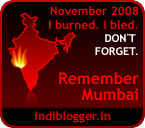
I picked up this book quite by
accident; was browsing through Goodreads and came across this title. The book
highlights the role women played in helping to end World War II; it is a story
of a township set up in Oak Ridge, Tennessee, USA, where the workers did not
know the true nature of their tasks till the end of the war. The name of the
book is a giveaway and I would not want to include any spoilers in this review.
The premise of the book is
quite interesting; while most men were away at war (World War II), the book
brings forth the untold story of the women – most of them working as chemists,
laboratory assistants, administration executives, secretaries, etc. who played
quite an important role. These women were recruited from all across USA, made
to work in a new town which was supposed to be a temporary arrangement but which
ended up becoming permanent, and basically sworn to secrecy about the work they
were doing there.
Most of these women were quite
young and fresh out of college who were quite excited at this prospect since
the pay was good and they were hoping that the war would end since most of them
had family members aware at war. This motivation was quite essential for them
since the living conditions at Oak Ridge were not exactly ideal. They still
made the best of their situation and many of them went to marry on their
colleagues and settled down with their families there.
The author Denise Kiernan has
done a lot of research for writing this book, including interviews with some of
the women, who are in their 80s and 90s currently, who worked on the project. She
is able to bring out the detailed lives of the women at Oak Ridge, including
their work schedules, their homes, their socializing and the lack of avenues
for doing that, the tribulations that they had to undergo owing to the secrecy,
etc. It is quite shocking to read some of the things that we take for granted
at our workplace – exchanging gossip about work, for instance – was absolutely
not an option for these women. They could also never know whether or not to
trust somebody for they never knew what would get reported back to the
authorities.
The book also intersperses the
chemical details of the project in between the personal lives of the women
including the contribution of German scientists, primary of who were women as
well. This was a real eye-opener for me to read about how the women’s role was
sidelined and the men took the credit for all of it.
Some parts of the book do feel
like repetition which could have been avoided by better editing. And there are
some grammatical errors as well. However, all in all, I enjoyed reading the
book and going behind the scenes of that one huge, secretive project that
changed the world, as it existed before then, forever.

